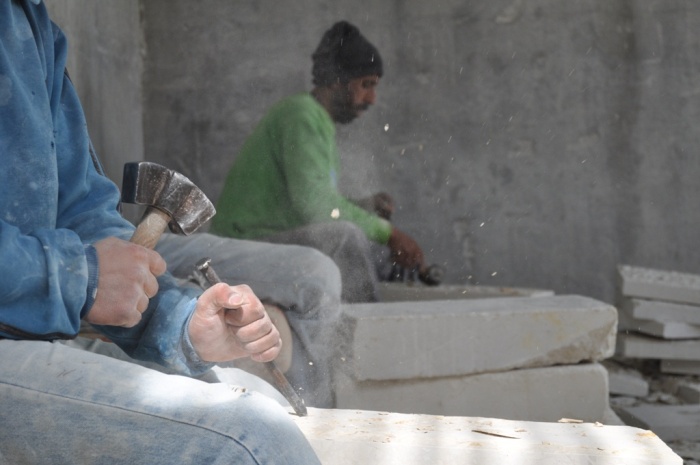We have the right to open a bank in Israel: Get surprised by terms from the Paris Protocol
Over 20 years have passed since signing the Paris Protocol;the economic appendix to the Oslo Accords. However, although the Palestinian economists, specialists and politicians have cast their anger on the agreement and demanded its disposal; it is still stuck in our way, and we are forced to deal with it. And thoughPalestinians have the ability totake advantage of some of the protocol’s terms for their benefit, the reality is that there isformal neglect, surrender to the status quo, and an unjustified inaction as well.
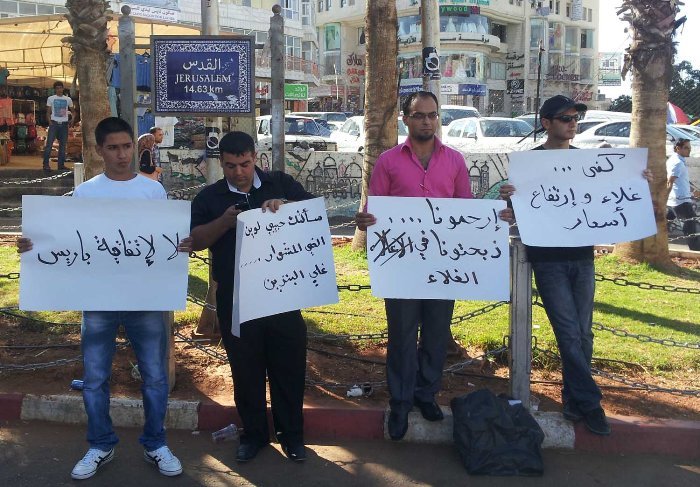
Ramallah- Palestine Economy Portal | Hasnaa al Rantisy- Nobody disagrees that the Paris Economic Protocol signed between the Palestine Liberation Organization (PLO) and Israel in 1994 have caused severe damage to the Palestinian economy. This was obvious in the statements of some officials during the financial crisis, as some of them have explicitly demanded modifying or replacing the protocol with another agreement that ensures the independence of the economic and trade policies of the Palestinian Authority (PA), while others only alluded to the same demand.
But, leaving the question of why has it not been modified or replaced until today; the real question that arises here is: why have not the (PA) taken advantage of all the “privileges” granted to them by this protocol yet? Here are some of the advantages:
Customs Tariff books
The protocol made lists of the products the Palestinians can import, and divided them into (A1, A2, and B). At the same time, it also allowed the (PA) to issue its own customs tariff book, but the (PA) has not done that yet; says Suha Awadallah, head of Foreign Trade Policy Department at the Ministry of Economy.
Awadallah adds: the “Tariff”, if applied, would allow the (PA) to cancel, decrease, or increase customs on certain products, which would contribute in encouraging investment, protect the domestic product from dumping, and design and reinforce economic policies in the country.
Workers’ rights
Although the protocolensures the normality of movement of labor between the two sides, Palestinian and Israeli, and ensures the rights of the Palestinian workers; the situation on the ground differs a lot. Israel does not transfer all agreed-upon deductions (income tax, health insurance, equalization deductions, membership deductions of the Histadrut, pension deductions) to the (PA), who would then transfer them to the workers. In reality, Israel only transfers some of the income tax deductions, and a portion of the health insurance payments.
In addition, the protocol includes Israel’s recognition of the Palestinian labor as migrant forces, therefore consideringthem eligible of full compensation and rights granted by the Israeli and International labor laws. Both sides agreed that Israel should transfer to the (PA) a sum equal to 75% of income taxes collected from Palestinians working in Israel, and 100% of income taxes collected from Palestinians working in the West Bank settlements. However, the Palestinian side did not establish a Social Insurance Institution as provided in the Paris Protocol, and therefore denied the Palestinian workers in Israelfrom their rights and entitlements.
The economic analyst Nafez Abu Baker attributed wasting some of the workers’ rights to the Palestinian inaction towards claiming their rights, and its surrender to the status quo.
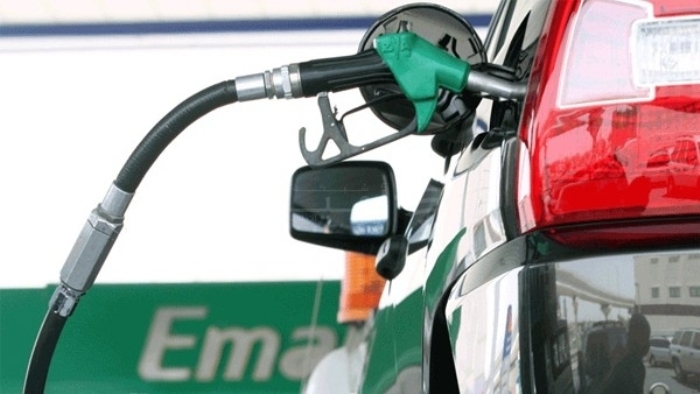
Fuel
The Palestinian side has the right to import gasoline from neighboring countries provided that it’s given a distinctive color to differentiate it from gasoline marketed in Israel, and that the difference in the final price does not exceed 15% in comparison to the gasoline marketed in Israel. At the same time, no terms were put in regards to importing other oil derivatives.
The 15% term would be very beneficial to the treasury. For example, the (PA) can buy gasoline for 2 NIS and sell for 7 NIS, therefore saving 4 NIS for the state treasury, says Mohammed Shahin, head of the Complaints and Research Unit in the Consumer Protection Association. However, when asked about the reason why this move has not been made yet, Shahin recalled the Venezuelan Oil Agreement for which Israel put all obstacles to prevent the oil from reaching the Palestinian side.
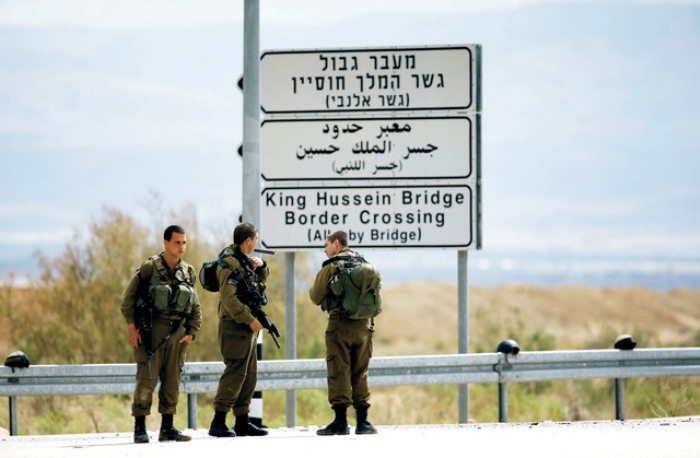
The exit/entry points have not been handled to us
The protocol states that “the Palestinian side should take over Jordan and Gaza’s exit/entry points”, but why has not the (PA) demanded for this right until now? Awadallah says that Israel claims the Palestinians are not ready to take over these yet.
It is noteworthy here that Israel deducts 3% of each transfer to the Palestinian side as administrative costs for supervising and collecting taxes. In the same context, the agreement states that all Palestinian merchants are allowed to use all shipping crossings in equality with Israeli merchants. However, Israel puts obstacles in front of the Palestinian merchants and deliberately delays the delivery of their goods on security pretexts.
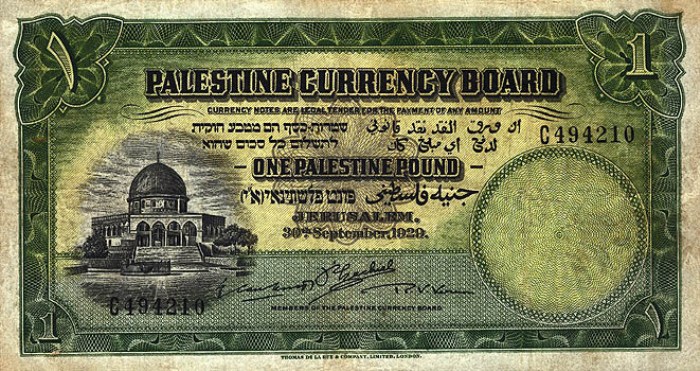
Why have we not issued a Palestinian currency?
The economic analyst Maher Tabba’ says that one of the Paris Protocol terms stated that both sides should continue to search through the Joint Economic Committee (JEC) for the possibility of issuing an agreed-upon Palestinian currency, or a temporary alternative currency for the (PA). However, the issuance of a national currency is one of many other terms that need a radical change in the Paris Protocol, to fit with the new changes on the ground, as Maher Tabba’ says.
Palestinian Banks in Israel
The Paris Protocol allows opening Palestinian banks in Israel that would be handled as are the international banks there. However, the Palestinian side did not take the initiative to establish a bank in Israel, though these banks would serve Arabs in Israel, and generate financial income for the (PA) and the private sector; says the head of Foreign Trade Policy Department at the Ministry of Economy
Jihad Abu Baker believes that fulfilling this term would not be beneficial to the Palestinians.He argues that Palestinian banks cannot compete in Israel because of the high interest in our banks in comparison to the Israeli ones: “Palestinian banks are not fulfilling their roles in Palestine, they do not provide privileges, and the interest rate is not suitable for the Palestinians, how then would they stand out between Israeli banks?”
A breach in tourism
The protocol allows an organized tourism movement between the Palestinian and Israeli sides through tourist offices. Awadallah explained that the entry of the tourist groups into Israel would benefit the Palestinian side as it would generate funds for the (PA) treasury, however; she pointed out that Israel refuses to apply this term on security pretexts.
It is also important to talk about the natural resources that the agreement allows the Palestinians to invest in, as Abu Baker says, but the Palestinian side is neglecting this opportunity, and surrendering to what Israel unlawfully imposes on us. Abu Bakerbelieves that the (PA) should head towards international courts to deter Israel from continuing to impose its policies on the Palestinians.
A breach in insurance
The Paris Protocol provided that there should be an “insurance fund” especially for road accidents. The insurance companies (both Palestinian and Israeli) deduct 30% of all vehicle insurers for the benefit of the fund, and in exchange the companies would cover all accidents that occur in their region. Awadallah explained that Israel deducts the amounts of the accidents that occur in the (C) area of the PA’s tax revenues without permission, consultancy, or objection.
Theft
If the commodities that enter through Israel arelabeled “destination Palestine”, or belong to a company operating in Palestine; then their taxes should be given to the Palestinian side. But, Israel stresses obstacles in front of commodities that are labeled “Destination Palestine”, and traders often have to label their merchandise “Destination Israel” to avoid these obstacles. Israel’s aim from doing so is to collect taxes for their benefit, says Awadallah.
Traveler’s exit/entry points.. an Israeli breach
According to the protocol, Israel may not inspect Palestinian citizens on travelers’ exit/entry points, and in case they suspect a Palestinian citizen, they should assign the Palestinian side to investigate with him. Awadallah explained: “Previously, citizens used to travel to Jordan without being inspected and without the existence of an Israeliinspection stop on the bridge. Then Israel established an inspection stop on security pretexts and breached the protocol”; wondering at what have we done except giving up to this reality?
Adding to that, Israel lifted the departure tax for the Palestinian travelers to reach 152 NIS, therefore; each traveler would pay about $40 instead of $26. According to the protocol, this amount should be distributed equally between the two sides ($13 for the Palestinian side, and $13 for the Israeli side) with the deduction of $1 to the benefit of the Israeli side. The result is that the amount would be $12 for the Palestinian side and $14 for the Israeli one, while stressing the importance of adjusting this every 3 months, and of transferring these amounts by Israel on monthly basis. However, Israel raises the tax unilaterally, as well as deducts food and hygiene expenses from the transferred amounts, resulting in the transfer of only $10.5 for each traveler instead of $12.
According to the lawyer Mahmoud Shehade, the (PA) can cancel the tax without any trials or courts, through negotiating with the Israeli side and abating the illegal tax.
It is noteworthy that, according to specialized authorities, the Palestinian side is eligible for about 161 million NIS for the period of 2008-2012.
The entry of Palestinian vehicles into Israel
Awadallah explained that according to the protocol, Palestinian vehicles are allowed to enter Israel, and Israeli vehicles are allowed to enter Palestinian areas. However, Israel prevents this movement on security pretexts.
Are the Palestinians allowed to make agreements?
Awadallah assured that the Paris Protocol allows the Palestinian and Israeli sides to make any economic agreements they wish to do.
